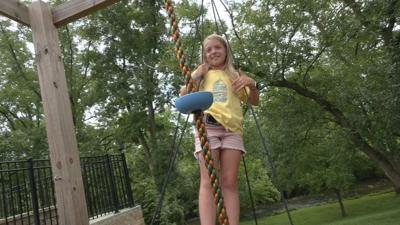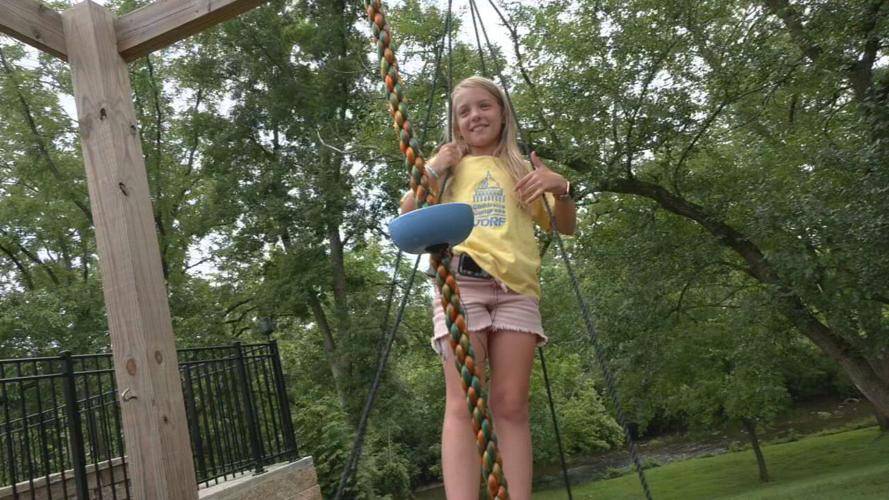LOUISVILLE, Ky. (WDRB) -- Lily Maggard does what she can to live like any other 8-year-old. While swinging on her playset Friday in Louisville, she said she likes to climb and sing like all her friends.
But Lily has something most others don't. When she was 6 — on the night after Halloween — she went to the hospital after having to use the bathroom 11 times during the night.
She was there for over two days, eventually diagnosed with Type 1 diabetes. Now, wherever Lily goes, her insulin pump and glucose monitoring system are nearby, attached to her arm and leg.
"We knew her life was forever changed," said Brittany Maggard, Lily's mother. "It was a struggle with every single finger stick and shot, which are multiple a day. We're not talking one time a day. We're talking about holding your 6-year-old down, 10-15 times a day, just to stick them and check their blood sugar."
Lily's parents said receiving the diagnosis was "a whirlwind." They said they're extremely proud of how she's handled it.
"She is an incredible, incredible human," Maggard said. "It, initially, was heartbreaking. There were a lot of tears the first few days, but it truly is impressive when you see an 8-year-old adapt to every single hurdle that's thrown at her."
To raise awareness about things like insulin and what it's like to be a diabetic, Lily and one other teenager from Kentucky are now heading to Washington with kids from other states with the Juvenile Diabetes Research Foundation (JDRF). Together, they're helping inform lawmakers about funding for the Special Diabetes Program, launched in 1998 to fund research and to try and develop a cure for Type 1 diabetes.
JDRF says on its website that renewed, multi-year funding for the program is "essential to continuing large-scale trials, proactively planning next steps for research programs, and allocating research dollars most effectively. Our continued engagement with Congress on SDP renewal is critical to achieve these outcomes for the T1D community."
It started with $30 million a year and has grown to a $150 million annual grant. But that money could stop this September.
Lily said she's hopeful she can help convince lawmakers to re-authorize the grants during her trip July 9-11.
"I'd like there to be at least better research, but maybe even a cure," she said.
For more information on the Special Diabetes Program, click here.
Copyright 2023 WDRB Media. All Rights Reserved.














